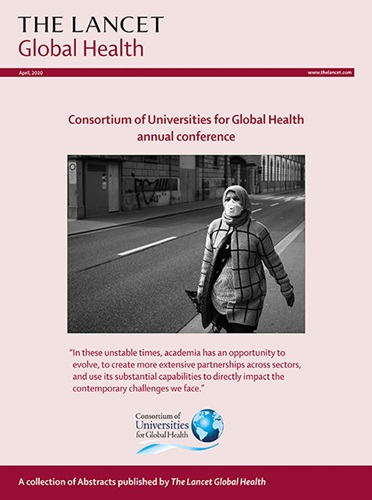妊娠期戊型肝炎疫苗的安全性:南苏丹本提乌境内流离失所者营地大规模反应性疫苗接种活动后的模拟目标试验。
IF 19.9
1区 医学
Q1 PUBLIC, ENVIRONMENTAL & OCCUPATIONAL HEALTH
引用次数: 0
摘要
背景流行性戊型肝炎会导致孕妇高死亡率,病死率超过 30%,并对胎儿造成不良影响。2022 年,南苏丹开展了首次大规模戊型肝炎反应性疫苗接种活动,接种了 HEV239 疫苗。我们的目的是评估接种戊型肝炎疫苗是否会增加接种过疫苗和未接种过疫苗的孕妇的胎儿死亡风险。年龄在 14-45 岁之间、目前没有黄疸或急性疾病的妇女和女孩都有资格参加。在分娩日期 28 天后再次访问同意接种者,以记录妊娠结果。我们采用了模拟目标试验框架来解决观察性研究中固有的偏差。我们根据接种者的年龄、孕龄和接种倾向得分对接种者和未接种者进行了配对,并在竞争风险框架下使用 Aalen-Johansen 估计器估算了接种者和未接种者的胎儿丢失累积发生率函数。在疫苗接种活动开始后出现妊娠结果的 2741 名妇女中,67 人(2-4%)在受孕前接种了疫苗,2036 人(74-3%)在孕期接种了疫苗,638 人(23-2%)未接种疫苗。在配对分析中保留的 2407 名妇女中,孕期接种疫苗者的胎儿丢失累积风险为 7-2% (95% CI 5-6-8-7),而未接种者的胎儿丢失累积风险为 6-1% (3-7-9-2),这意味着风险比为 1-2 (95% CI 0-7-1-9)。本文章由计算机程序翻译,如有差异,请以英文原文为准。
Safety of hepatitis E vaccine in pregnancy: an emulated target trial following a mass reactive vaccination campaign in Bentiu internally displaced persons camp, South Sudan.
BACKGROUND
Epidemic forms of hepatitis E cause high mortality among pregnant people, with case fatality risks over 30% and adverse fetal outcomes. In 2022, the first mass reactive vaccination campaign against hepatitis E was conducted in South Sudan with the HEV239 vaccine. We aimed to assess whether vaccination against hepatitis E in pregnancy increases the risk of fetal loss in a cohort of vaccinated and unvaccinated pregnant people.
METHODS
In this emulated target trial, an exhaustive pregnancy census was conducted in Bentiu internally displaced persons camp after the second of three vaccination rounds. Women and girls aged 14-45 years with no current jaundice or acute illness were eligible for participation. Individuals who consented were revisited 28 days after their delivery date to document the pregnancy outcome. We used an emulated target trial framework to address biases inherent in observational studies. We matched vaccinated to unvaccinated participants on age, gestational age, and vaccination propensity score and estimated cumulative incidence functions for fetal loss in vaccinated compared to unvaccinated women in a competing risks framework using the Aalen-Johansen estimator.
FINDINGS
Between May 16 and June 30, 2022, 3421 participants were enrolled and followed up for inclusion in analysis. Among 2741 women who had a pregnancy outcome after the start of the vaccination campaign, 67 (2·4%) were vaccinated before conception, 2036 (74·3%) were vaccinated during pregnancy, and 638 (23·2%) were not vaccinated. Among the 2407 women retained in the matched analyses, the cumulative risk of fetal loss among individuals vaccinated during pregnancy was 7·2% (95% CI 5·6-8·7) compared with 6·1% (3·7-9·2) among unvaccinated individuals, implying a risk ratio of 1·2 (95% CI 0·7-1·9).
INTERPRETATION
No evidence of increased risk of fetal loss was found among individuals vaccinated during pregnancy.
FUNDING
Médecins Sans Frontières.
求助全文
通过发布文献求助,成功后即可免费获取论文全文。
去求助
来源期刊

Lancet Global Health
PUBLIC, ENVIRONMENTAL & OCCUPATIONAL HEALTH-
CiteScore
44.10
自引率
1.20%
发文量
763
审稿时长
10 weeks
期刊介绍:
The Lancet Global Health is an online publication that releases monthly open access (subscription-free) issues.Each issue includes original research, commentary, and correspondence.In addition to this, the publication also provides regular blog posts.
The main focus of The Lancet Global Health is on disadvantaged populations, which can include both entire economic regions and marginalized groups within prosperous nations.The publication prefers to cover topics related to reproductive, maternal, neonatal, child, and adolescent health; infectious diseases (including neglected tropical diseases); non-communicable diseases; mental health; the global health workforce; health systems; surgery; and health policy.
 求助内容:
求助内容: 应助结果提醒方式:
应助结果提醒方式:


